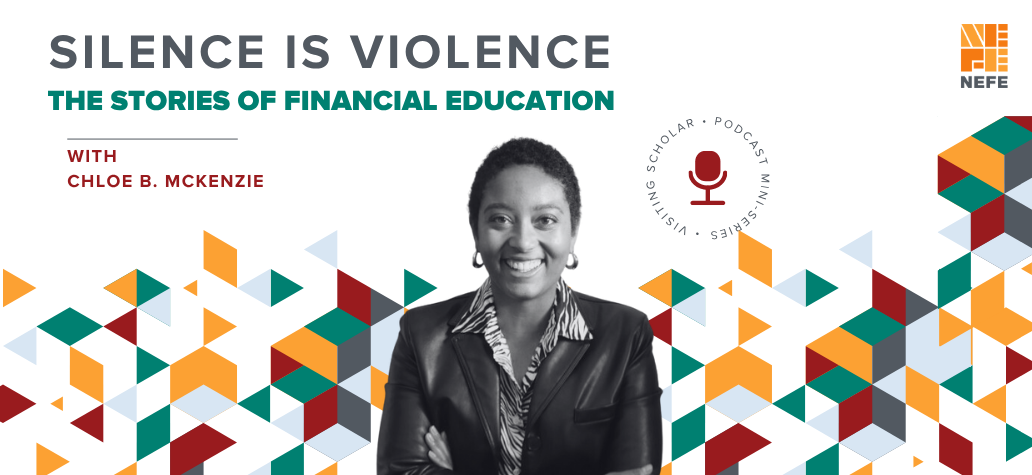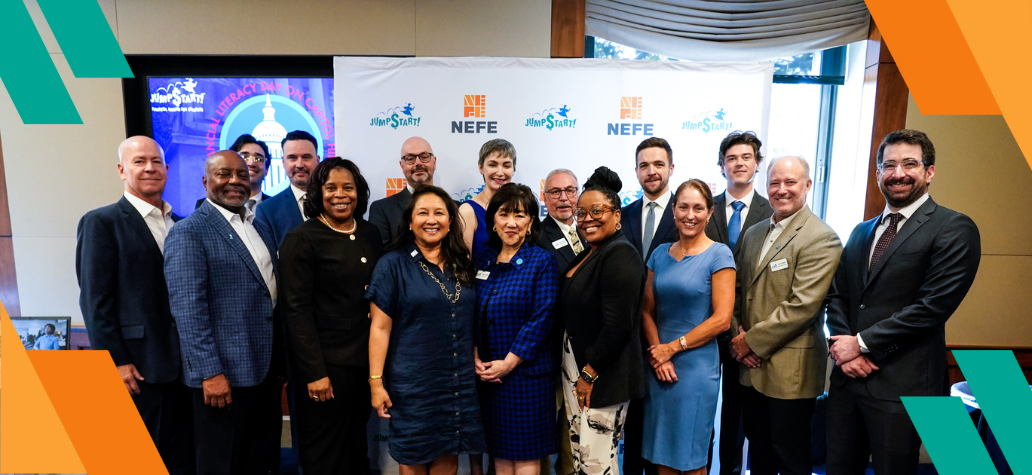As young adults emerge into adulthood and enter the complex landscape of personal finance, they face numerous choices and challenges.
We are thrilled to share this insightful article from Dr. Michelle Samuels-Jones, senior vice president, Equity here at NEFE. Originally published as an education campaign supplement published by MediaPlanet that appeared online and in select markets with USA Today and the Los Angeles Times, "The Importance of Equity in Financial Education" delves into the crucial role of financial literacy and the disparities in access to quality financial education across different demographics. Dr. Samuels-Jones highlights the pervasive inequalities in financial education, advocates for equitable practices, and underscores the importance of trust in financial institutions. This article sheds light on how effective financial education can empower marginalized and vulnerable populations to navigate the financial landscape with confidence and make informed decisions.
Financial education plays a crucial role in finances and our overall well-being. Unfortunately, many schools do not prioritize financial education instruction, leaving students unprepared to manage their finances and plan for their future.
A study by the nonprofit National Endowment for Financial Education (NEFE) reveals strong public support for teaching financial literacy in schools. A nationwide opinion poll found that 88% of Americans think their state should require a semester- or year-long personal finance course for high school graduation, with 80% of adults wishing they were required to take such a course during their high school years.
This widespread support reflects a growing awareness of the importance of financial education in preparing young people for adult financial responsibilities. However, for many, pervasive inequalities exist in the access to and the quality of courses. For example:
- Only 5% of low-income or predominantly underrepresented schools require personal finance classes. In contrast, higher-income and mostly white schools are three times more likely to offer a dedicated course.
- High schools with more than 75% Black or Hispanic students are half as likely to offer a course compared to schools with fewer than 25% Black or Hispanic students.
- Rural high school students are over three times more likely to take a personal finance course than those in urban areas.
As we advocate for change, these disparities present an opportunity, particularly in K-12 education. To date, 25 states have implemented or are in the process of implementing a high school graduation requirement for personal finance courses — a significant increase from 2019, when just six states had such a requirement. This means just over 40% of all U.S. high school students will be required to take a course. While this momentum is encouraging, we must champion equitable practices that ensure effective financial education for all.
Trust and discrimination in financial services
Policy changes and targeted initiatives have increased access to financial resources and opportunities for marginalized and vulnerable populations, yet serious disparities persist.
Consumer trust in the financial system is among the systemic factors that impede access. According to NEFE, trust in financial institutions dropped in 2023 after several high-profile bank failures, with underrepresented groups experiencing the most significant decline in confidence. Overall, faith and confidence in the financial system dropped from 45% before the bank failures to 39% afterward. Notably, trust in financial institutions to act ethically and honestly also declined among various race and ethnic groups:
- Trust among Black/African American adults dropped from 45% to 31%.
- Trust among Hispanic/Latino adults fell from 50% to 36%.
- Those identifying as another race, or two or more races, experienced a drop from 62% to 56%.
Discrimination and bias also prevent people from engaging with financial services. In another nationwide poll from NEFE, U.S. adults reported experiencing discrimination or exclusion within the financial services sector:
- 16% say they have faced bias, discrimination, or exclusion.
- 18% feel blocked or discouraged from engaging with financial services or products because of how they are designed, marketed, or offered.
- Women (31%) are more likely to report negative experiences than men (11%).
Equipped for success
While financial education alone is not a remedy for discrimination and bias in financial systems, effective financial education is essential in equipping marginalized and vulnerable populations to better navigate the financial landscape.
Similarly, financial education is one part of a Personal Finance Ecosystem comprising many factors determining financial well-being. Therefore, our ability to reimagine and shape inclusive, equitable approaches in areas like budgeting, saving, investing, managing debt, and credit-building position financial education as a tool to help individuals gain confidence, make informed decisions, and be able to spot financial exploitation.
Policy changes and partnerships within the public and private sectors can further advance this goal. Still, we must have a shared commitment to ensure everyone across perspective, background, identity, and culture are expected to and can live their best financial life.
Michelle Samuels-Jones, Ed.D., is senior vice president, Equity of the National Endowment for Financial Education (NEFE), a nonprofit foundation that champions effective financial education. NEFE is the independent, centralizing voice providing leadership, research and collaboration to advance financial well-being.



